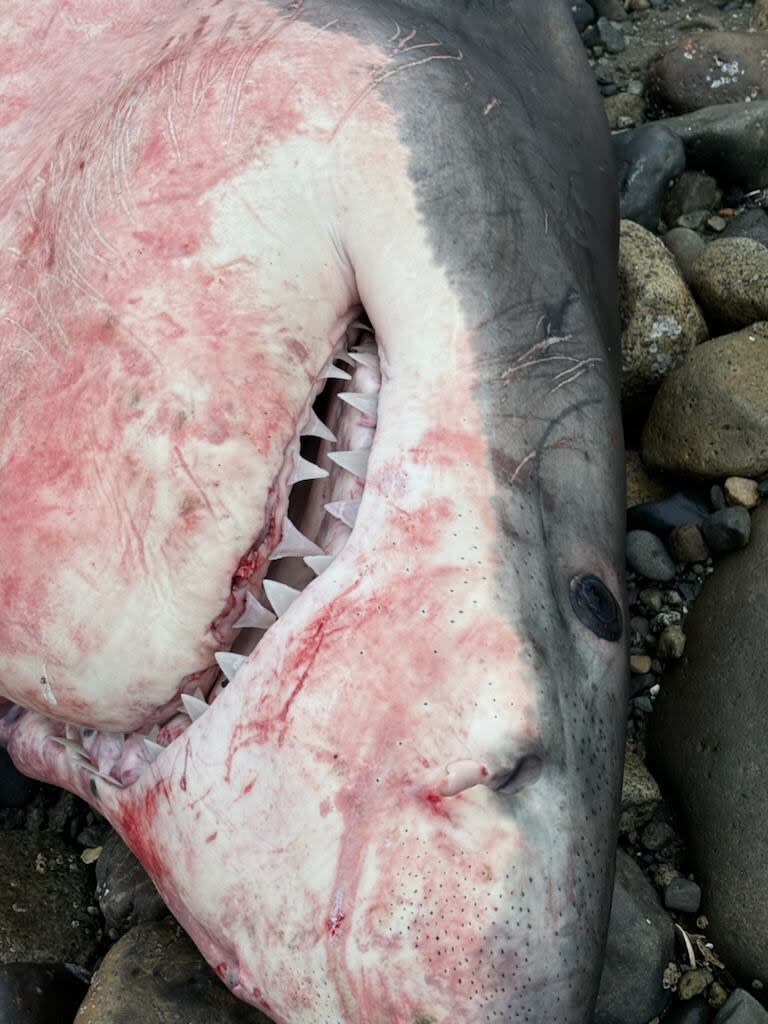A terrific white shark has truly been found useless on the shore of Haida Gwaii in north B.C.
It was uncovered by Mike Miles, that states he noticed it whereas boating just south of Tlell, B.C., off Haida Gwaii’s jap shore.
“I thought I was seeing a young orca, then thought it was a beaked whale,” he knowledgeable CBC News by the use of textual content. “Then, a great white shark! Cool and a bit sad.”
He reported it to the federal government Department of Fisheries and Oceans (DFO), which has truly verified the categories, claiming it was a male figuring out concerning 13.5 ft or 4 metres in measurement. They likewise found a seal in its digestive tract, “a common prey for this species,” in line with speaker Athina Vazeos
Vazeos claimed examples have truly been accrued for examine aims, consisting of purpose of fatality, and previous that, they’re “letting nature take its course” on what takes place to the physique.


DFO states it acknowledged the shark by its tooth, along with its fin and tail. Tissue examples have been accrued for examine aims. (Mike Miles)
Climate adjustment driving sorts north
Great white shark discoveries in B.C. are unusual, as they generally tend to favor nice or subtropical waters.
They are usually not unusual, although, and have truly been seen as a lot north because the Gulf of Alaska, Vazeos claimed.
However, scientists have truly alerted that climate change is likely to see more of them make their way proper into rural seas, a message restated by the DFO.
“Given climate change, we can expect their occurrences in our waters to increase in frequency in the coming decades,” Vazeos claimed.
Research from UBC’s Institute for the Oceans and Fisheries has truly designed that with out outstanding cuts to exhausts, waters off B.C. are anticipated to be round 1.5 C hotter than at present by the yr 2050.
According to authorities paperwork, there have truly simply been 13 recordings of the species in B.C. in 46 years, although that info was final upgraded in 2006.
The gigantic fish are far more ordinary in Atlantic Canada nevertheless are considered endangered.

